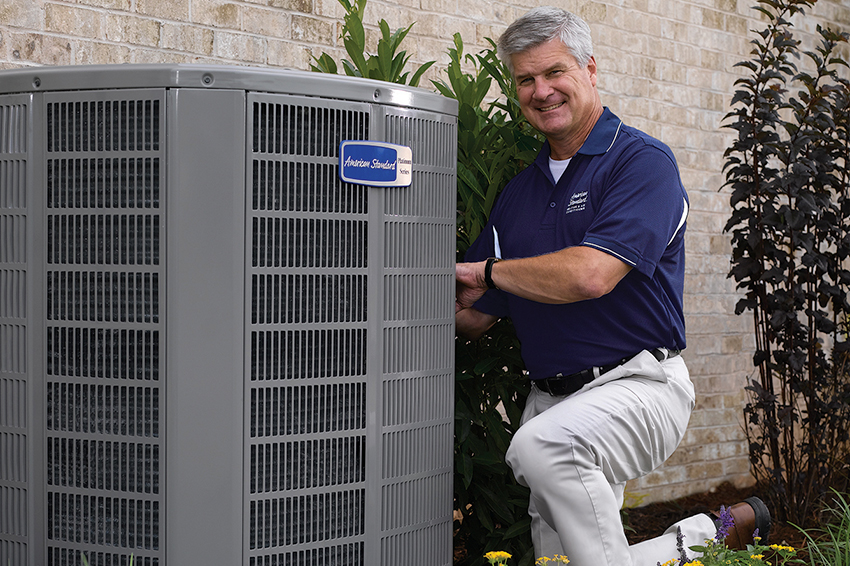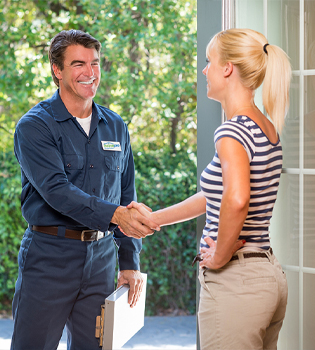
Homeowners looking for efficient and convenient heating and cooling solutions will find package unit HVAC systems to be an excellent choice. These systems integrate heating and cooling components into a single outdoor unit, simplifying installation and maintenance while saving valuable indoor space. Package unit HVAC systems offer consistent and reliable performance, ensuring optimal indoor comfort throughout the year.
Benefits of Package Unit HVAC Systems
Package unit HVAC systems offer a range of advantages, including efficient use of space, reduced energy costs, affordability, and ease of maintenance.
Space-Saving Solutions
Package unit HVAC systems are compact and typically installed outside the home. This frees up valuable indoor space, which is especially advantageous for smaller homes or buildings with limited mechanical room. By combining heating and cooling components into a single unit, these systems require less room than traditional split systems.
The outdoor installation also minimizes indoor noise, contributing to a quieter home environment.
Enhanced Energy Efficiency
Package unit HVAC systems often come with high-efficiency ratings. The integration of all components into a single unit improves the overall performance of the system. Energy-efficient compressors and advanced coil designs help reduce energy consumption, leading to lower utility bills.
Cost-Effectiveness and Value
Investment in a package unit HVAC system can be more economical compared to separate heating and cooling units. The unified design simplifies installation, resulting in lower labor costs. Additionally, the combined system can reduce the need for multiple service calls, further saving money on maintenance and repairs.
Simplified Maintenance
Maintaining a package unit HVAC system is relatively straightforward, as all components are housed in a single, easily accessible location. This centralization reduces the complexity of regular servicing and troubleshooting. Simplified design translates to fewer parts that can wear out or fail.
Regular maintenance checks can be conducted more efficiently, potentially extending the lifespan of the system.
Comparing HVAC System Types
Choosing the right HVAC system for your home involves evaluating the differing features, benefits, and drawbacks of various systems. Key points of comparison include placement, maintenance, efficiency, and installation.
Package Units vs. Split Systems
Package Units combine heating and cooling components into a single outdoor unit, which makes them compact and space-efficient. They are ideal for homes with limited indoor space. Maintenance is generally simpler since all parts are housed together, and installation is quicker with just one unit to set up.
Split Systems consist of separate indoor and outdoor units connected by refrigerant lines. These systems can be more efficient due to their ability to house larger, more efficient components indoors. They offer greater flexibility in placement and often operate more quietly since the noisy compressor is outside.
Assessing Pros and Cons
Package Units offer pros such as easier installation and maintenance, as well as space-saving design. They are suitable for areas where indoor space is limited. However, their main cons include exposure to outdoor elements, which can lead to faster wear and tear, and typically higher noise levels.
Split Systems offer pros including the potential for higher efficiency, quieter operation, and flexible installation options. They tend to be better suited for areas with more indoor space. Cons involve more complex installation, which can be more costly and time-consuming, and the need for more space to house both the indoor and outdoor units.
Professional HVAC Services
Engaging professional HVAC services ensures your package unit operates optimally, providing comfort and efficiency.
Expert Assessment and Consultation
Professional HVAC services such as those provided by House Pro begin with a thorough assessment and consultation. Technicians evaluate your home’s specific heating and cooling needs, taking into account factors like size, layout, and existing ductwork.
Consultation services include detailed discussions on energy efficiency, potential cost savings, and any unique homeowner preferences. This helps in making informed decisions that align with both comfort goals and budget constraints.
Comprehensive Installation Services
Installation of an HVAC package unit by professionals guarantees that the system is set up correctly from the start. Expert installers manage all aspects, from securing necessary permits to configuring the unit to operate at peak efficiency. This process includes connecting electrical components and calibrating the system for optimal performance.
A professionally installed HVAC system reduces the risk of future problems and extends the lifespan of the unit. Proper installation also means compliance with local building codes and safety standards. Homeowners benefit from peace of mind knowing that their HVAC system is installed by certified experts.
Dedicated Maintenance and Repair
Regular maintenance and repair services are crucial for the longevity and efficiency of your HVAC package unit. Professionals provide scheduled check-ups, cleaning, and tune-ups to keep the system running smoothly. House Pro offers dedicated repair services to promptly resolve any problems that arise, minimizing downtime and discomfort.

Maintenance and Installation Best Practices
Proper maintenance and installation key practices include regular cleaning, filter management, ensuring correct installation, and scheduling consistent inspections.
Effective Cleaning and Filter Management
Regular air conditioning cleaning and filter replacement are essential to maintain the efficiency and air quality of a package unit HVAC system. Filters should be inspected monthly and replaced at least every 3 months, depending on usage and air quality.
Dirty filters can significantly reduce airflow and strain the system, leading to higher energy consumption. Cleaning external components, such as the condenser coils, also helps in improving system efficiency. Simple tools like a soft brush and a vacuum cleaner can be used for this task.
Ensuring Proper System Installation
Ensuring proper installation of a package unit HVAC system is critical to its performance and longevity. This involves selecting a suitable location that allows for adequate airflow and easy access for maintenance.
Professionals should verify that the ductwork is correctly sealed and insulated. Missteps during installation can lead to poor efficiency, frequent breakdowns, and higher energy bills.
Importance of Regular System Inspections
Scheduling regular inspections is vital for detecting potential issues before they become major problems. A professional should check the system at least twice a year, ideally before the cooling and heating seasons.

